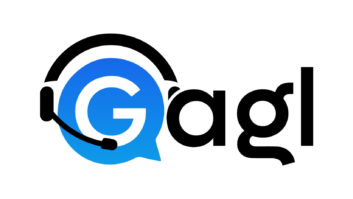Syndicating a Website’s Content in Five Minutes
Apr 1, 2005 12:00 PM, By Joe Dysart
Responding to the tremendous buzz over RSS (Really Simply Syndication) a number of free sites on the Web have sprung up that completely automate the process of syndicating site content across the Web. In practice, this means that in a matter of minutes, you’re now able to tweak your site so that hotlinks to your company press releases and similar promotional materials can be sent to RSS readers across the Web.

NPR offers a wide range of RSS-syndicated programming, each on its own RSS �channel.�
The popularity of RSS is growing exponentially. The technology is being seen by increasing numbers of Web users as an alternative to e-mail, because it can be used by Web surfers to track changes on websites without requiring a user to release an e-mail address.
In practice, RSS-generated news of website updates–including press releases, white papers, new product downloads and site changes–arrives as headline hotlinks, which RSS-users can click on to view the full press release or other site change.
While initially popularized by bloggers to alert their readers about blog updates, RSS is currently poised to go mainstream. Megaportal My Yahoo (my.yahoo.com/s/rss-faq.html), a site used by millions worldwide to track news and information, recently added RSS-tracking to its arsenal of Web data gathering tools, for example. Third-party products like RSS Explorer (rssexplorer.planet-hood.com) are enabling users to add a toolbar to Internet Explorer to makes the browser RSS-ready.
Also fueling mainstream acceptance are sites like Ice Rocket (rss.icerocket.com), which offer easy-to-use RSS builders that automatically generate the tiny strip of code needed to make a Web page RSS-readable. Ice Rocket offers the service free-of-charge as a way to encourage use of its main product: its Web search engine.

Minnesota Public Radio takes a similar approach to NPR.
NPR (www.npr.org/rss) offers a wide-range of RSS-syndicated programming, each on its own, individual RSS “channel.” Minnesota Public Radio (minnesota.publicradio.org/about/site/rss) takes a similar approach, as does CBC/Radio Canada (www.cbc.ca/rss) and KSL News Radio 1160 AM, Salt Lake City (radio.ksl.com/index.php?sid=112927&nid=19).
Generally, an individual can find invitations for RSS tracking–little tags stamped with the acronyms RSS or XML–on the home page of websites encoded with RSS.
How it works
Probably the first thing users will notice when they get to Ice Rocket’s RSS builder is the great pains the company has taken to simplify and goof-proof the process of RSS-link generation. Essentially, creating the link takes four steps: registration, channel creation, item creation and publishing. The process takes about five minutes.
The first step, registration, will take seconds. All Ice Rocket asks for is the user’s e-mail address, a password and the user’s first and last name.

CBC/Radio Canada has also joined the RSS fold.
Next, the user will be asked to create a channel, which is used by RSS distribution sites to send his RSS link across the Web. To create a channel, users need some data inputs: the user’s website name, URL, a brief description, a URL that will be used to source an image for the channel (usually the home page), the user’s e-mail and any copyright info he would like to add.
Once a channel has been created, begin adding links to specific items–such as press releases, white papers and new Web brochures. Ice Rocket requires is a title for the item, a URL, a brief description of the item and the user’s e-mail address. As an added service, Ice Rocket also verifies that the item as rendered on the user’s Web page can be read by RSS news aggregators, and republished on other websites.
The last step is actually handled automatically by Ice Rocket. It automatically generates the code for a tiny RSS icon, which can be cut-and-pasted onto the user’s website where his item appears. The icon serves as a heads-up for anyone using an RSS-reader � or anyone using an RSS-capable portal like My Yahoo � that changes to the site can be tracked via RSS.
With these four steps, anyone can create an “RSS feed,” and his site has joined the ranks of tens of thousands of others, including The New York Times, CNN, BBC and About.com, that have decided to broaden their reach by making their sites readable to the RSS community.

KSL News Radio 1160 AM, Salt Lake City, serves up the RSS option to its listeners, too.
(If Ice Rocket doesn’t suit your fancy, you can find several other free RSS builders by entering key-phrase �RSS builder� into any search engine.)
Promoting and tracking
Even though Ice Rocket’s RSS builder is virtually goof-proof, users may want to spend some extra time making sure the feed is picked up by all the major RSS news aggregators, and that all the major RSS readers are picking up on the feed as well.
The major RSS news aggregators include Syndic8 (www.syndic8.com), Complete RSS (www.completerss.com), Feedster Finder (feedfinder.feedster.com), News Is Free (www.newsisfree.com), and RSS Feeds (www.rssfeeds.com). Each of these sites will offer a link to click on to enter the URL of a site where RSS-coded content is available.
Also, double check the readability of your site’s RSS feed in a few, well-established RSS readers. These include Feed Demon (www.feeddemon.com), Feed Reader (www.feedreader.com), Newz Crawler (www.newzcrawler.com), Ampheta Desk (disobey.com/amphetadesk), Net News Wire (www.rancher.com/netnewswire), Newsgator (www.newsgator.com), Bloglines (www.bloglines.com), My Wire Service (www.mywireservice.cm) and Feed-Me (www.feed-me.info).
Yet another group of sites, RSS search engines, specializes in searching out RSS content on the Web and summarizing those offerings. These sites differ from the others in that they go beyond simply citing RSS feed names and descriptions, and bringing back summaries of the actual text being offered by the RSS feeds. These sites include Technorati (www.technorati.com), Daypop (www.daypop.com), Feedster (www.feedster.com), Pub Sub (www.pubsub.com) and Rocket News (www.rocketnews.com).
Dysart is an Internet business consultant based in Thousand Oaks, CA.
Additional RSS resources
For a deeper understanding of the technology, here are some great sites:
- RSS: What it is, Where to get it, How to make it, How to use it.
interleaves.org/~rteeter/rss.html#where
This site is easily one of the most comprehensive informational sites on RSS available. Essentially: Stop one for anyone looking to get an overview of the technology. - RSS: Your Gateway to News and Blog Content by Danny Sullivan searchenginewatch.com/sereport/article.php/2175281 One of the pre-eminent gurus on Internet search, Sullivan offers hands-on users guide to RSS with this article. Besides an overall explanation and background, Sullivan offers detailed descriptions of numerous RSS news aggregators and RSS search engines.












